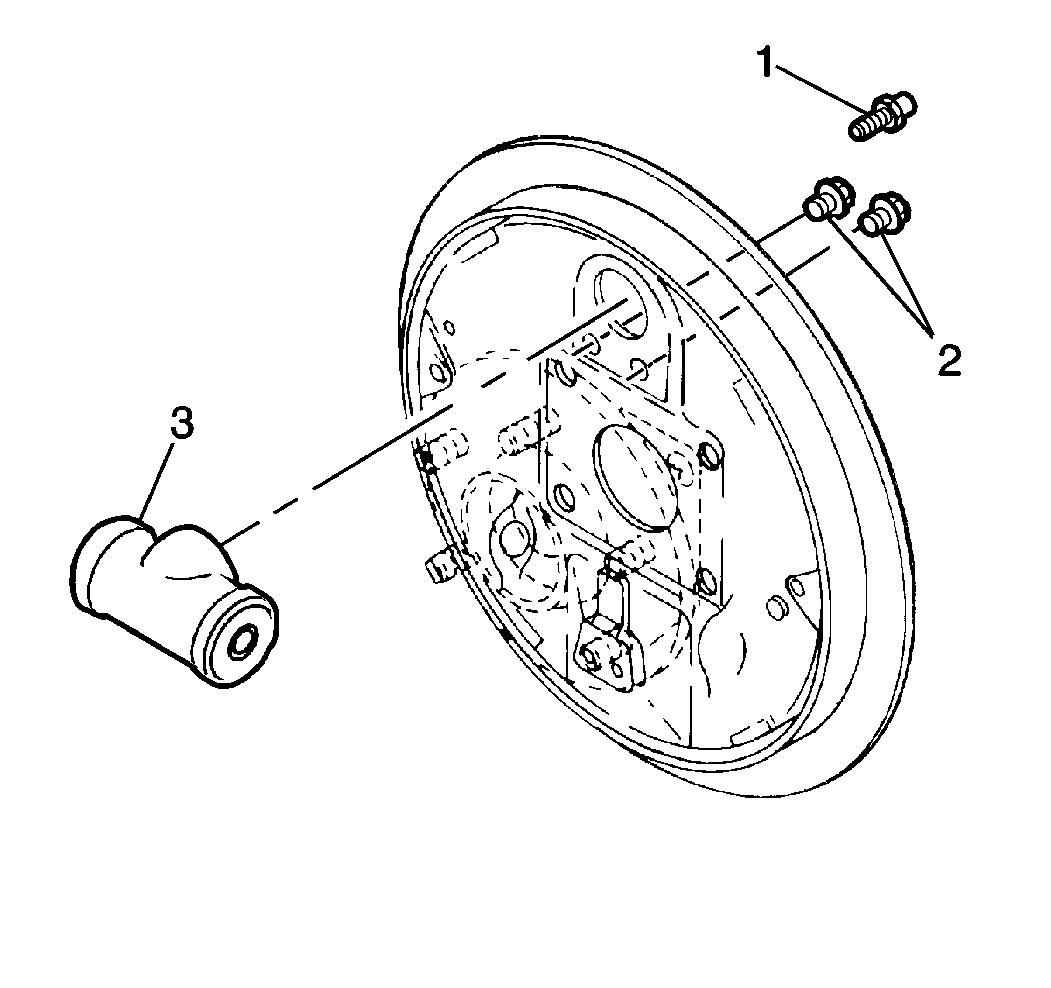Removal Procedure
- Clean the area around the wheel cylinder inlet, the pilot and the bleeder valve.
- Remove the brake drum. Refer to Brake Drum Replacement .
- Remove the brake components, as needed for access. Refer to Brake Lining Replacement .
- Remove the bleeder valve (1).
- Disconnect the brake pipe from the wheel cylinder. Plug the opening in the pipe to prevent fluid loss and contamination.
- Remove the bolts (2).
- Remove the wheel cylinder (3).
- Clean the old sealant from the backing plate where the wheel cylinder was removed.
- Clean the sealant from the wheel cylinder (if the wheel cylinder is to be reinstalled).

Installation Procedure
- Apply Loctite® Master Gasket or equivalent to the wheel cylinder shoulder face that contacts the backing plate.
- Position the wheel cylinder and hold it in place.
- Install the bolts.
- Connect the brake pipe to the wheel cylinder.
- Install the bleeder valve.
- Install the brake components. Refer to Brake Lining Replacement .
- Install the brake drum. Refer to Brake Lining Replacement .
- Bleed the wheel cylinder. Refer to Brake Lining Replacement .
Notice: Use the correct fastener in the correct location. Replacement fasteners must be the correct part number for that application. Fasteners requiring replacement or fasteners requiring the use of thread locking compound or sealant are identified in the service procedure. Do not use paints, lubricants, or corrosion inhibitors on fasteners or fastener joint surfaces unless specified. These coatings affect fastener torque and joint clamping force and may damage the fastener. Use the correct tightening sequence and specifications when installing fasteners in order to avoid damage to parts and systems.
Tighten
Tighten the attaching bolts to 12 N·m (106 lb in).
Tighten
Tighten the brake pipe fitting (tube nut) to 15 N·m (11 lb ft).
Tighten
Tighten the bleeder valve to 10 N·m (88 lb in).
